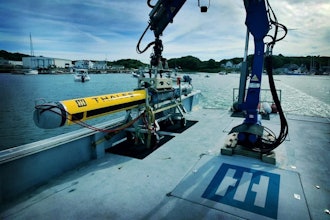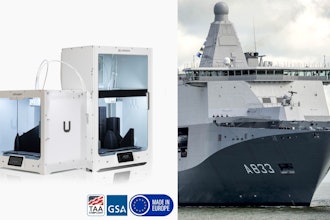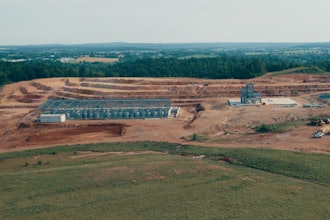
BEIJING (AP) — Chinese leader Xi Jinping on Wednesday hailed a visit by French President Emmanuel Macron as giving a boost to multilateralism and free trade, amid ongoing economic tensions with Washington.
The two countries also pledged continued support for the Paris Agreement as the U.S. begins its withdrawal from the landmark climate deal.
Following a welcome ceremony at the Great Hall of the People in central Beijing, Xi said the two leaders had sent "a strong signal to the world about steadfastly upholding multilateralism and free trade, as well as working together to build open economies."
In his remarks, Macron said China and Europe "share the same feeling that trade war only results in losers."
"Developing market access and partnerships between our companies is a priority," Macron said.
China and France signed commercial agreements Wednesday with a total value of $15 billion, covering areas including aviation, finance and environmental protection.
The French leader's visit is timed to ease some of the tensions that are stifling global commerce, with the U.S. and China in a bitter fight over tariffs and the EU pressing China to make good on commitments to boost imports of agricultural products and manufactured goods while opening its market for financial products and other services.
Macron's trip provided the occasion for the EU and China to sign a deal to better protect food and alcohol products from copying and counterfeiting. Another agreement is under discussion between Beijing and Brussels to provide a framework for investment.
During a joint briefing with Xi, Macron appeared to take a jab at the U.S., which this week began the process of withdrawing from the Paris climate agreement.
Macron expressed "regret" over "some countries' negative attitude" toward environmental protection and the fight against climate change, pledging to work with China on halting the loss of biodiversity. The French president's office also released a statement Wednesday that reaffirmed France and China's joint support for the "irreversible" Paris Agreement.
France and China are "committed to realize unprecedented efforts to ensure the future of the next generations, to intensify international efforts in the fight against climate change and to accelerate the transition toward a green development," the statement said.
On the issue of fundamental freedoms and human rights, Macron said that he and Xi discussed their respective positions. Western leaders have been under pressure to address the five months of anti-government protests in Hong Kong, a semi-autonomous Chinese territory.
At a news conference, Macron said he evoked Hong Kong "several times" with Xi. "I obviously raised our concerns, which are also Europe's concerns ... we called several times on the parties to engage in dialogue, restraint, de-escalation," he said.
Macron also raised European concerns over Chinese tech company Huawei's involvement in building the next-generation 5G wireless network. Without specifically naming Huawei, the EU warned last month that next-generation telecommunication networks face a range of cyber threats, including from hostile countries.
"I think that Huawei is right to invest in 5G because it's a technology of the future," Macron said. "I just say that at some point, on some part of our network, it's an issue of sovereignty. ... So European states must have a say. That's completely normal."
Earlier this week, Macron visited the commercial hub of Shanghai, where he visited a sprawling import fair and presided at the ribbon cutting for a branch of Paris' famed Centre Pompidou modern art museum along the Chinese city's riverfront.
Designed by British architect David Chipperfield, the Pompidou Shanghai embodies China's aspirations to become a center of culture as well as business, although the ruling Communist Party's strict demands for ideological purity have caused some to question whether it can succeed at such a quest.
The Pompidou will assemble items for exhibit at the Shanghai outpost from among its huge collections under a five-year contract.





















